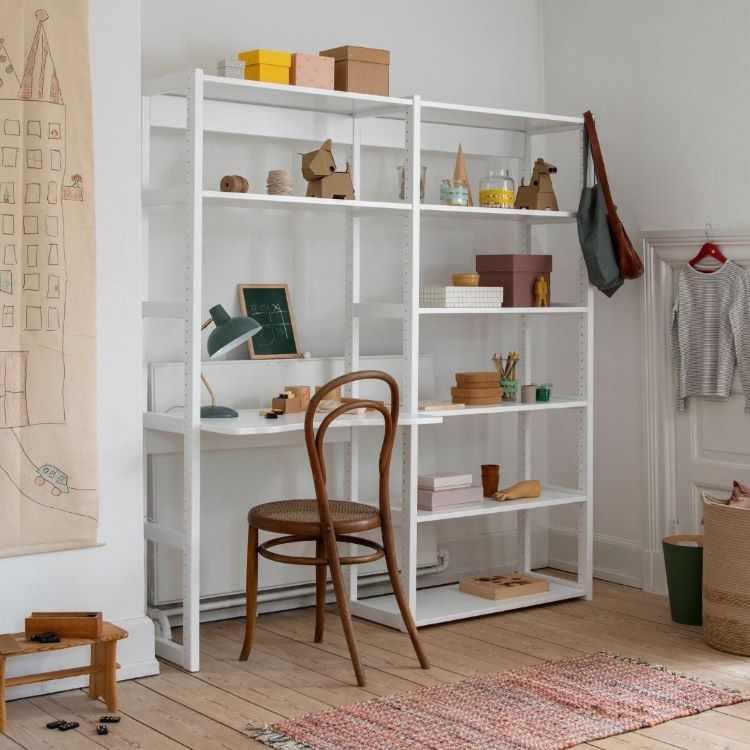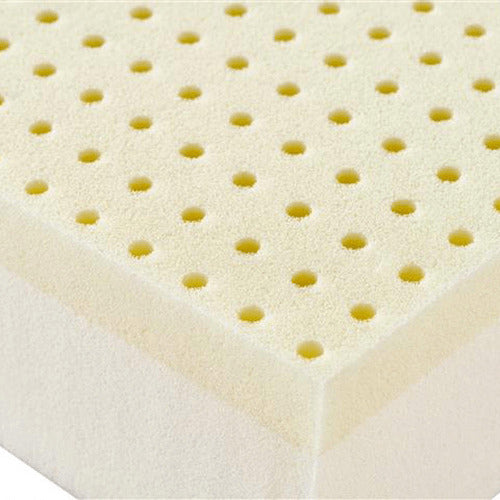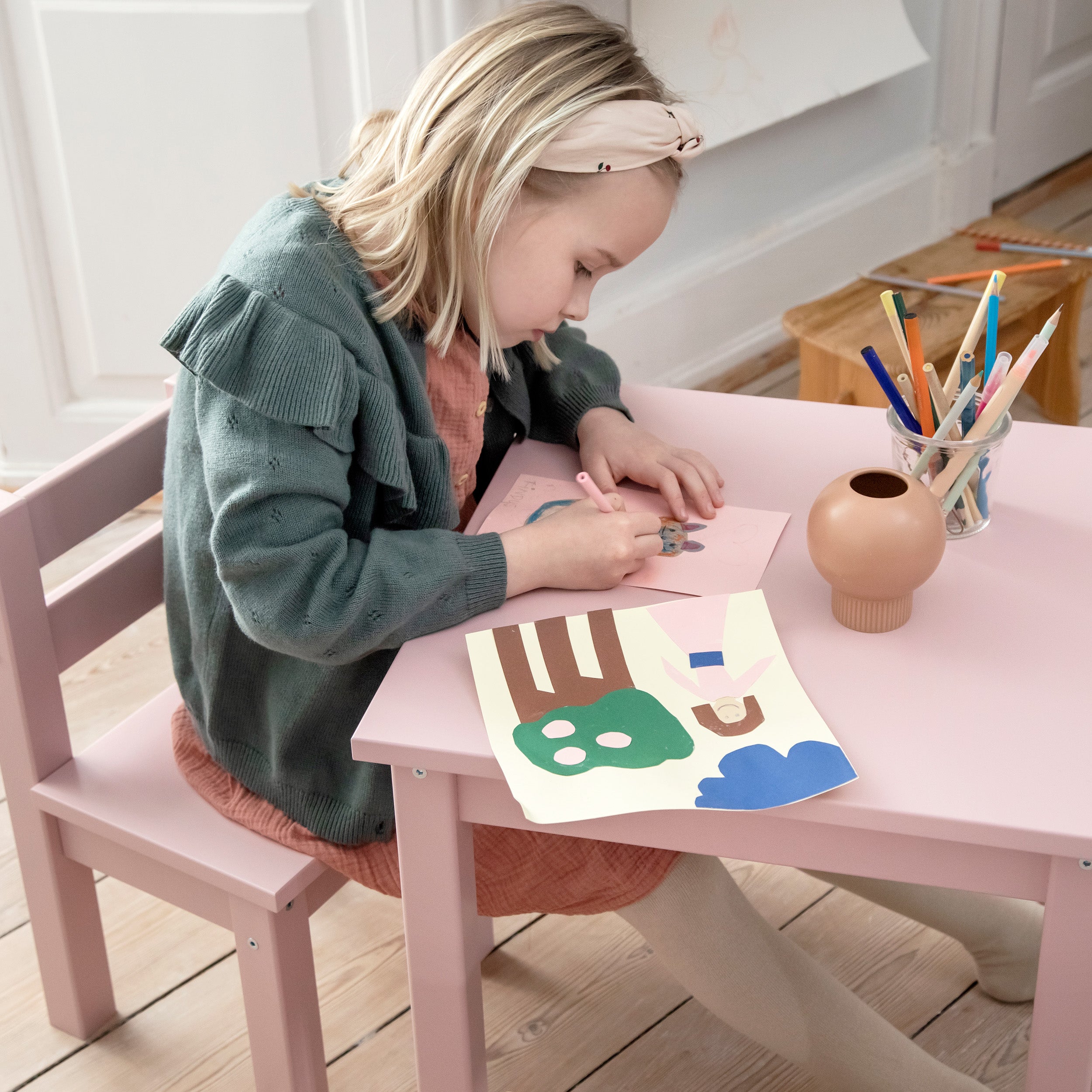Why is sleep important?
Why is sleep important for children?
Sleep is an important part of learning. Children's sleep helps their concentration, memory, and ability to learn new things. It is therefore important for children to get enough sleep.
If you have slept well and wake up rested, your body and brain are much better prepared for a day full of experiences, decisions, and challenges. And there's a reason for that, because it means that your body has done all the things it needs to do during the night.
When we sleep, our bodies work hard to prepare us for the next day. Sleep is divided into 4 sleep stages that cycle throughout the night: Light sleep, a little deeper sleep, deep sleep, and REM sleep. If you wake up rested, you have gone through the different sleep stages multiple times, preferably in one continuous sleep.
You cannot control when you are in which stage, but on the bright side, if you are a tired parent of a young child: When you are really tired, your body takes better advantage of the different stages, so you can get by anyway. A sleep cycle takes between 90-110 minutes. The stages are the same for both children and adults, but the duration of each stage varies depending on your age.
The four sleep stages
Stage 1 - light sleep
Light sleep is a transitional stage. It is where the body finds peace and prepares for the cycle it will go through during the night. The muscles in the body relax and brain waves decrease in activity. In this stage, you may sometimes experience sudden jerking in your legs.
This is completely natural and likely happens because the body has difficulty transitioning from muscle tension to relaxation. Light sleep is the shortest stage and lasts about 5-10 minutes.
Stage 2 - a little deeper sleep
Technically, this could be described as the second phase of stage 1, as stage 2 is still relatively light sleep from which one can be awakened relatively easily. But the body begins to relax even more. This is especially evident in brain waves, which become slower and gentler in their fluctuations.
We no longer have contact with our consciousness. Adults spend about half of their sleep in stage 2. For children, it is somewhat less, but it increases as they grow.
Stage 3 - deep sleep
If you have ever been awakened from a deep sleep, you will recognize the feeling of being groggy - almost confused. It can take up to half an hour after waking up for the brain to function at full power. It is especially during deep sleep that the most happens in the body.
It is during deep sleep that the body rebuilds skin, hair, nails, cells, strengthens the immune system, regulates metabolism, and repairs wear and tear and other damage. For children, deep sleep also helps release growth hormone so their bodies can grow and develop. That's why it is important for children to get enough sleep. Deep sleep will therefore also account for more time in younger children than in adults.
Stage 4 - REM sleep.
What is REM sleep? REM sleep, or Rapid Eye Movement, is the part of sleep where the brain repeats the sensations and experiences from our waking hours and stores the learned things. The brain works hard and blocks signals to the muscles. All you can see are the eyes moving back and forth behind closed eyelids.
When a child is about six months old, they begin to experience REM sleep in earnest. During REM sleep, the brain stores all the things that we have learned and experienced throughout the day. It is during this stage that the learned things and memories are transferred from short-term memory to long-term memory.
This is important because it allows the child to hold on to things such as their motor development, create relationships with their surroundings, recognize grandparents, and much, much more. This is the stage where we dream, but at the same time, we are easy to wake up.
Therefore, it happens that we wake up in the middle of a dream. Because REM sleep is where we process what we have learned, it can explain the high need for sleep in children, as they have a high rate of motor learning in a short period of time during their early years. An adult dreams during 20-25% of the night during REM sleep, but sleeps for a shorter time than a child.
Children dream up to 50% of their sleep time. The need for REM sleep decreases slightly during the first few years of life, and in adulthood, REM sleep decreases to 25%. Sources: videnskab.dk, sundhedsplejersken.dk, sundhed.dk.
How much should children sleep?
Children have different sleep needs depending on their age. Especially in the first few years of life, there is a high need for sleep, as children need the growth hormone to develop - and it is released during deep sleep. However, the need for sleep decreases as they get older, as does the amount of deep sleep during the night. According to sundhedsplejersken.dk, children start by sleeping around 15-18 hours in a 24-hour period, and as the child gets older, the number of hours of sleep they need decreases.
Sleep needs in children
| Age | Sleep needs |
| 1-4 weeks | Children aged 1-4 weeks need approximately 15-18 hours of sleep. |
| 1-12 months | Children aged 1-12 months need approximately 14-15 hours of sleep. It is also during this period that children begin to be able to sleep for 5 hours in a row. |
| 1-3 years | Children aged 1-3 years need approximately 12-14 hours of sleep. |
| 3-6 years | Children aged 3-6 years typically sleep 10-12 hours at night. |
| 7-12 years | Children aged 7-12 years typically sleep 9-11 hours at night. |
| 13-18 years | Children aged 13-18 years typically sleep 8-10 hours at night. |
Sources: sundshedsplejersken.dk.
5 tips for better sleep
- Create a bed for sleeping - not playing. It's a bit of a balancing act because the bed should be cozy and comfortable, but not too exciting. Place toys out of reach from the bed, if possible.
- Ensure good air and temperature. Air out the room just before bedtime and aim for a temperature between 15-22 degrees Celsius. Keep the room dark or with dim lighting - for example, from a slightly ajar door.
- Make the evening "boring". Even though it's tempting to play when you finally have time, after a day of work and cooking, try to make the evening "boring." If you play vigorously and get a big adrenaline rush right before bedtime, it can be difficult to relax. Instead, engage in calm activities at a slow pace, such as doing puzzles, reading a book, or drawing.
- Establish a bedtime routine. Okay, you've probably heard this one before. But that routine is important. On the other hand, it doesn't matter which comes first, brushing teeth or putting on pajamas, so it's about finding out what works best. The routine should be relaxing and enjoyable for everyone involved, even though it may sometimes seem like a challenge.
- Create a pleasant wake-up experience. Even the best sleep can be ruined if you are awakened in an unpleasant way. Try to establish a good routine around waking up, as it will make your mornings more enjoyable and your morning routine easier. Find the best routine by listening to your child's needs.




























































